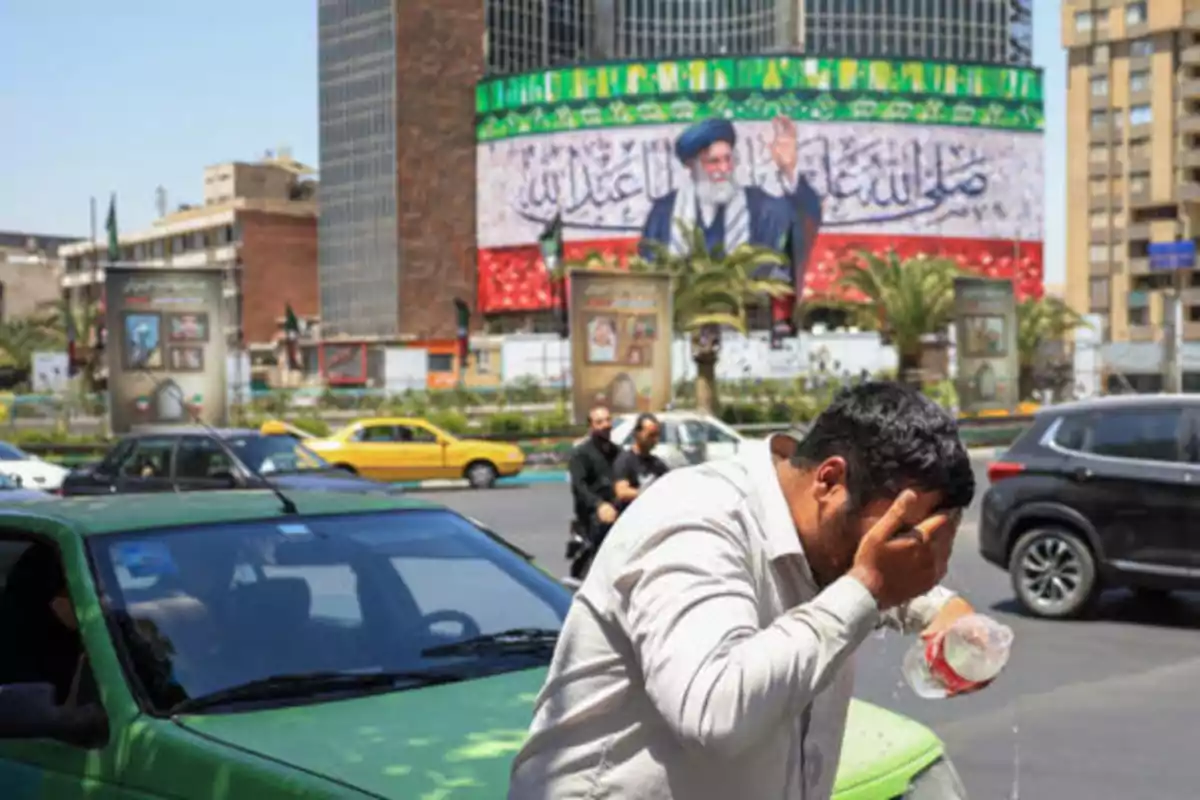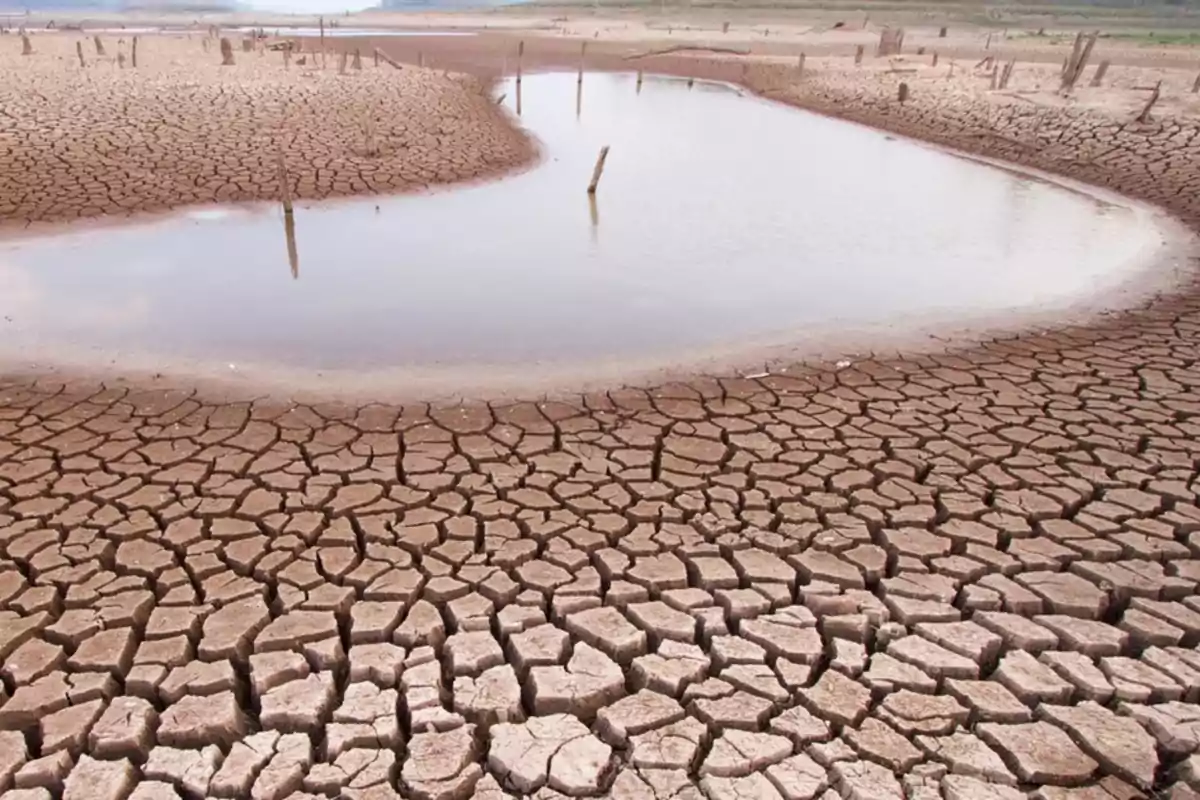
Iran faces a water crisis and an unprecedented extreme heatwave
Water reserves in Iranian dams are at just 42% of their capacity and could be depleted
Iran's president, Masoud Pezeshkian, warned on Monday that several regions of the country, including the capital Tehran, are facing an unprecedented water crisis.
Pezeshkian made these statements during a meeting with Iranian media directors in Tehran, where he also highlighted the actions that the terrorist regime is implementing to address the situation.
The Iranian leader indicated that ongoing efforts are being made to transfer water from the nearby Taleqan Dam to Tehran, in order to ensure supply in the province during the autumn. However, he acknowledged that it is still unclear whether this measure will be sufficient to solve the crisis, given that precipitation in the region has dropped by 45%.

Water reserves in Iranian dams are currently at just 42% of their total capacity, according to the state agency IRIB. According to the report, since the beginning of the current hydrological year, which started on September 22, 2023, only 23.56 billion cubic meters of water have entered the dams, representing a 42% decrease compared to the same period last year, when the volume was 40.55 billion cubic meters.
During a press conference held on Saturday in Tehran, Mohammad-Taqi Hosseinzaden, director of district 5 of the city's Water and Wastewater Company, warned that reserves in Tehran's dams will be depleted by the end of September, and called on the population to carefully manage their consumption.
The water shortage is mainly attributed to an "unprecedented" drought that has affected the country since the beginning of the current hydrological year, according to Iran's Water Resources Administration.

As if that were not enough, Iran is also suffering from an extreme heat wave that has raised temperatures up to 50°C (122°F), and has resorted to the closure of government offices in 16 provinces, including Tehran, in order to reduce electricity consumption.
The meteorological agency warned that the heat wave, which has extended since mid-July, will persist for at least five more days, with intense temperatures that could collapse the power grid. The increase in demand for air conditioning has caused prolonged power outages, forcing the population to endure extreme heat conditions.
More posts: